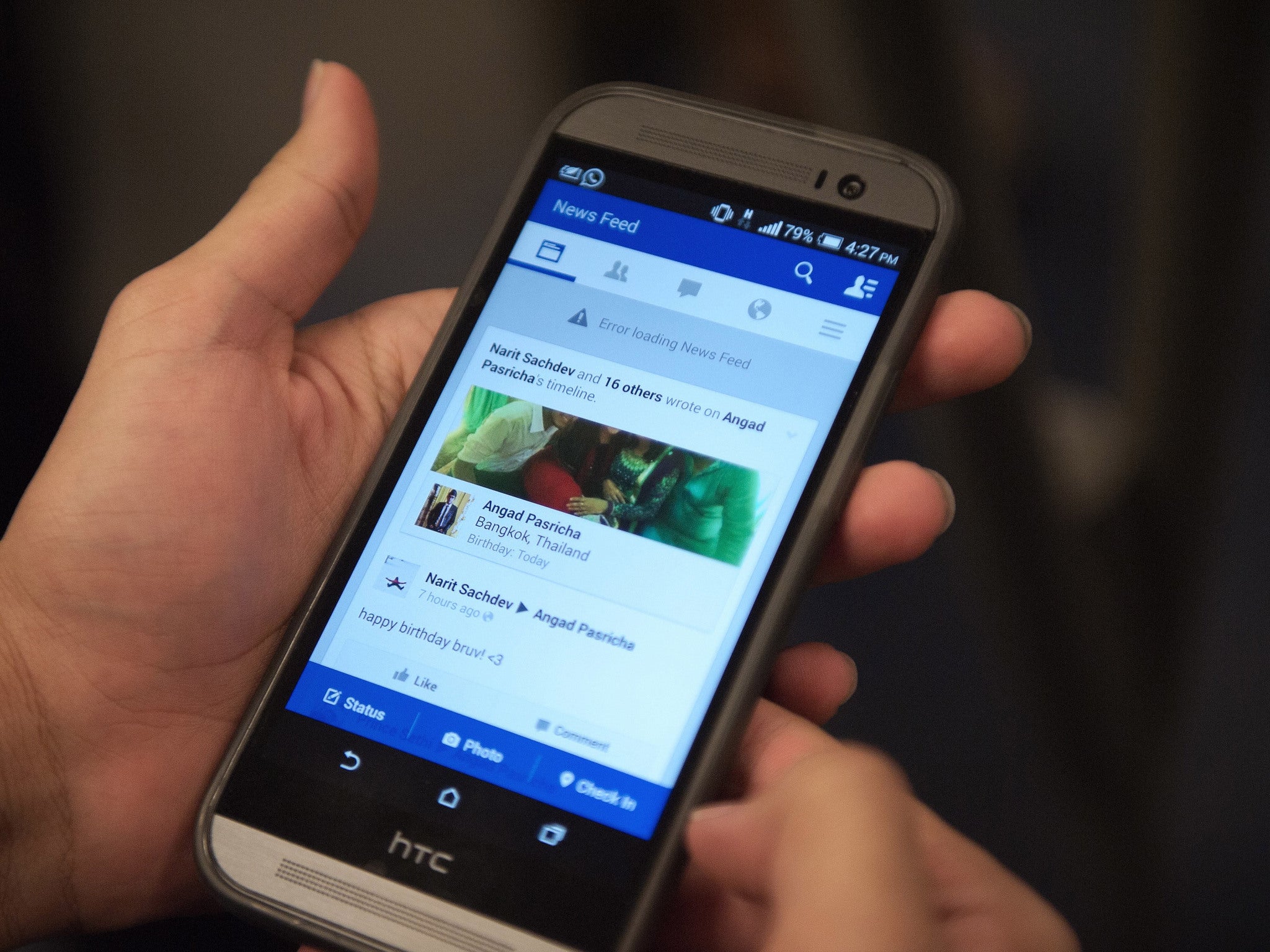Facebook and Twitter posts could indicate if people are going to get ill, researchers say
Scientists hope that by combining social media posts with health data, they can find out about how people are getting ill — and potentially make them better

Your Facebook and Twitter posts could be giving away information about your health — and scientists are hoping to build a databank to study the connection ever more closely.
After researchers examined the health and social media data of 1,000 people, they found that there was a close connection between how people post on their accounts — and that people were happy to give them away.
In the study, patients visiting an accident and emergency department were asked if they used social media. If they said yes, they were asked to share their posts and electronic medical data with health researchers, so that they can build up a database that connected the two.
The researchers then compared the two sets of information.
They found that there was a close connection between the language people were using on social media and their health data. The scientists now hope that they can build a full database of the two so that they can link posts to health problems.
Scientists say that some of the health data is more obvious, such as a post saying “I forgot to take my pill for my heart problems today”. People tend to talk about their problems — people with adominal problems are much more likely to post about “stomach pain” or “belly ache” — and so scientists can create a full picture of how people’s health and social media data interact.
But other information is more subtle — like a series of Instagram pictures that all include salty foods.
Over a longer time, a decrease in the complexity of words used could show that somebody’s cognitive skills are declining, or a change in the length of words that are used or number of people that are being spoken to could indicate that somebody is depressed.
Scientists are now hoping that they can build more of that databse.
“The social media and health data bank, which we are continuing to build, serves a valuable purpose in helping us think about health in new ways, some of which we haven’t even begun to consider,” said Raina M Merchant, the senior author of the study. “Just as genetic information is banked to track potential future health, previously unobservable social media postings – made up of words, language, and conversations – may also be banked from consenting individuals and evaluated for potential correlations with health and health outcomes.”
Participants in such a study would have to consent to having their social media and health data collected and analysed. But researchers said that users were surprisingly willing to hand over their information.
Researchers also hope that they can broaden the work connecting health data with social media.
““These findings suggests that social media is a promising avenue for exploring how patients conceptualize and communicate about their specific health issues,” said Lyle Ungar, who is a professor of computer science at the University of Pennsylvania’s School of Engineering and Applied Science, and a co-author on the study. “We see this as just the first of many studies to come examining the relationship between health and social media.”
Subscribe to Independent Premium to bookmark this article
Want to bookmark your favourite articles and stories to read or reference later? Start your Independent Premium subscription today.

Join our commenting forum
Join thought-provoking conversations, follow other Independent readers and see their replies